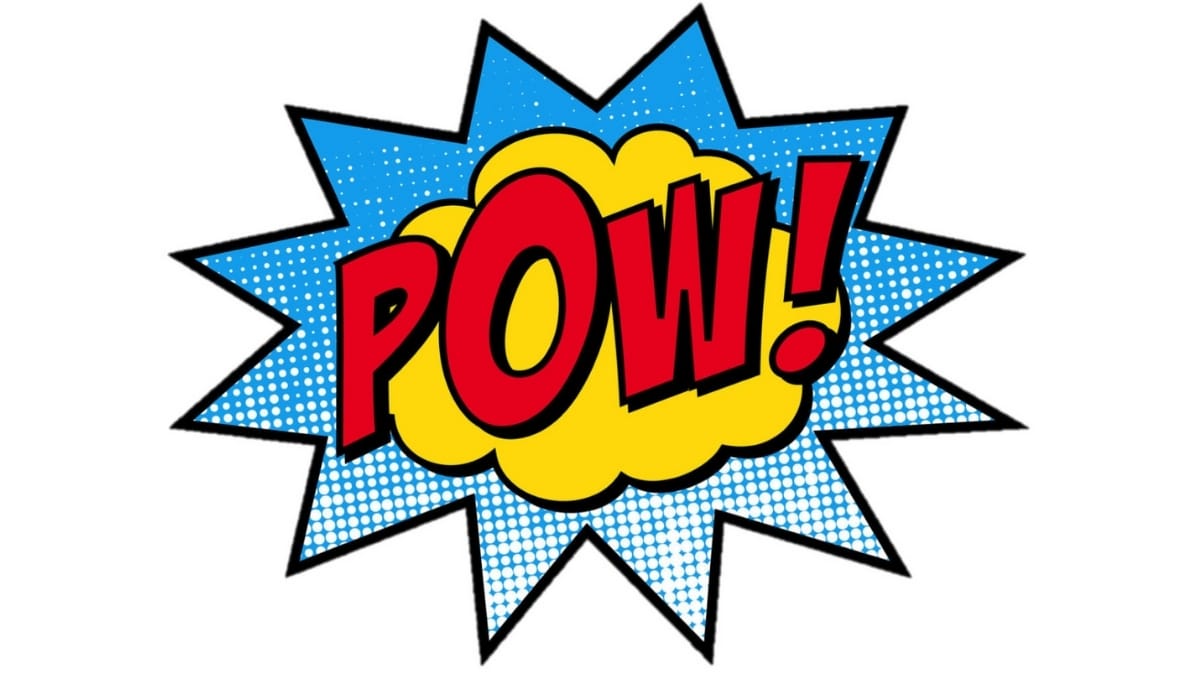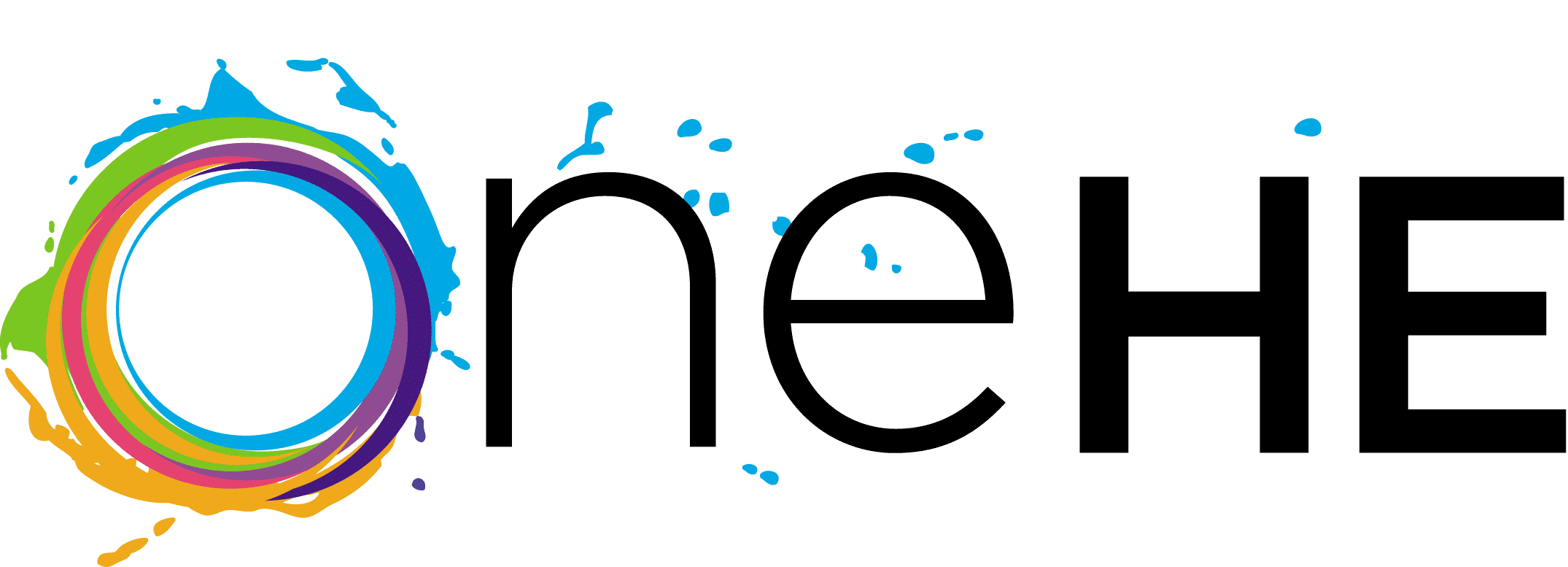Four Ways To Fight The ‘Super Teacher’ Myth

Jessamyn Neuhaus

This presentation was created in collaboration with and narrated by Jessamyn Neuhaus, Professor of US history and Interim Director of the Center for Teaching Excellence at the State University of New York at Plattsburgh (SUNY), USA, and the author of Geeky Pedagogy: A Guide for Intellectuals, Introverts, and Nerds Who Want to be Effective Teachers (West Virginia University Press, WVUP, 2019).
Click on this text to view the video transcript
-Hello, welcome to ‘Four Ways to Fight the Super Teacher Myth’. A presentation brought to you by OneHE. My name is Jessamyn Neuhaus pronouns she, her. And I’m the author of “Geeky Pedagogy”, Professor of US history and popular culture at SUNY Plattsburgh, an interim director of the Center for Teaching Excellence. Find me on Twitter @GeekyPedagogy.
So when OneHE approached me about doing a presentation, I had to decide what’s the one piece of advice I’d give every college instructor if I had their ear for 15 minutes. And here it is, you got to fight the super teacher myth. Who’s the super teacher? He’s part of the highly idealised, narrowly defined, an unrealistic popular and widespread image of what good college teaching learning looks like. It’s reinforced in popular culture and in our public discourse about all levels of education. Unfortunately, he sometimes even appears in otherwise excellent scholarship of teaching and learning or educational development. The super teacher is a charismatic white cisgendered male professor standing in a lecture hall, expounding effortlessly, while students magically learn merely by being in his always entertaining presence. He always makes learning fun, and he’s often described as brilliant or a born teacher.
The problem with the imagined super teacher is that it shapes our expectations about teaching and learning even unconsciously. It shapes what students expect of their instructors and it shapes what instructors expect of the best, quote unquote, ‘teachers’. It contributes to systemic wide body supremacy and gender views of knowledge and expertise in higher education, creating stereotypes about good teaching and learning. It undermines our teaching self-efficacy and discourages a growth mindset about teaching skills. The super teacher fancy discourages faculty’s belief in their own unique abilities to help their students learn. Let’s get this guy out of our heads.
There’s four big things we can do to fight the ‘super teacher’ myth. First, always remember that learning is hard. Second, cultivate an educator’s growth mindset. Third, be a J.E.D.I. and contribute to Justice, Equity, Diversity, and Inclusion in your teaching context. Fourth, look for and celebrate effective teaching. ??The number one reality check to help stop super teacher thinking is understanding that learning how to do anything well is hard. It takes a lot of practice, mistakes, feedback, self-correction, reflection and repeated persistent effort. There’s no magic shortcut, no brilliant lecture or charismatic classroom performance that will make learning effortless. Learning is hard even in otherwise ideal conditions. But if your context as a student includes socioeconomic stressors, systemic inequities, or say a global pandemic, cognitive overload is real and learning is even harder. And when I say learning is hard, I’m not just talking about students and our course content, but also our own teaching skills and abilities. Nobody, and I mean, nobody is born knowing how to teach effectively. It takes ongoing learning to figure out how to help our ever changing student populations learn how to do things.
In real life, success as a student and a teacher is never easy. As memorably illustrated in this drawing, Sylvia Duckworth’s Iceberg Illusion, all the successful learning, the iceberg, you can see floating above the water line is built on a huge unseen bedrock of persistence, dedication, failure, sacrifice, disappointment, and hard work. Super teacher swoops into the classroom and in one brilliant quip illuminates knowledge for every student. In real life, effective teachers plug away, day after ever loving day, making mistakes, correcting them, researching what works in their teaching context and trying again. Always working to figure out how to best facilitate student learning.
Which brings us to growth mindset. One of the best weapons I’ve found to fight the super teacher myth is cultivating a growth mindset. A growth mindset is the understanding that skills and abilities are not fixed inherent qualities, but rather things that we can learn how to do better with knowledge and practice. Teaching with a growth mindset means knowing and constantly reminding yourself that nobody is born an effective teacher. Effective teachers slowly laboriously accumulate knowledge over time and continually practice pedagogical skills, making mistakes as we go. All of us are always learning how to be an effective teacher.
One great way to cultivate an educators growth mindset is to feed your teacher brain by reading scholarship of teaching and learning. For my top recommendations and also for lists of fantastic podcasts about teaching in higher education, visit my website, geekypedagogy.com, and click on the recommended reading and listening page. In addition to the published scholarship of teaching and learning, an energetic community of practice can help us stay grounded in realistic and applicable solutions and strategies for teaching and learning problems. Mine is on academic Twitter, where you can find a community of teacher scholars sharing a ton of information and good ideas.
Another place anyone can go to connect with other practicing teachers and to feed your educators growth mindset is OneHE, at onehe.org. OneHE emphasises the importance of educators as unique individuals. It promotes and recognises this by working with as many varied voices and experts as possible to support educators in developing their teaching their way. And that’s all encouraged via community platform that supports social learning.
Pursuing justice, equity, diversity, and inclusion in higher education should be on the top of everyone’s teaching to do list. Increasing the ability of all students to succeed and decreasing the systemic inequities, BIPOC and students with disabilities face is one of the most pressing challenges all colleges and universities are dealing with. It just so happens that being a JEDI is also a way to fight the super teacher myth, because the super teacher myth reinforces systemic inequity and racialised, gendered, and other stereotypes about professors contributing to what Roxanna Harlow termed, disparate teaching realities, for BIPOC instructors, faculty with disabilities, white women faculty, women faculty of color, and anyone who doesn’t fit that super professors stereotype. Inequity creates obstacles for both student learning, as well as teaching efficacy.
Anyone who’s been told you don’t look like a professor knows that it’s not a compliment, but rather a way of calling into question an instructors expertise and sense of belonging in higher education. Educating ourselves about anti-racist pedagogy, engaging in inclusive teaching practices, and speaking out about unequal teaching conditions, including adjunct exploitation and misuse of teaching evaluations, for example, help us become JEDIsed and to fight the super teacher myth. Busting preconceptions about what a professor quote unquote, ‘looks like’, and teaching practices that interrupt bias about faculty increase student learning. They increase teaching efficacy and they challenge the notion of a white able-bodied cisgendered male super teacher.
Finally, I urge you to fight the super teacher myth by recognising and celebrating effective teaching. I use that word effective deliberately because although I understand why people use terms like excellent teaching or the best teachers, I believe that they can inadvertently reinforce the super teacher myth, drawing on our collective assumptions and stereotypes about what transformational teaching looks like. Instead, I want to celebrate the true diversity of what educators do when they help students learn how to do something better. That’s what effective teaching means. You’ve helped a student learn how to do something better.
Remember that learning is hard, learning new skills and building abilities as a student and as a teacher takes practice. You make mistakes, you have to get feedback. You have to reflect and you have to get support for improvement. It can be easy to get discouraged. In fact, we all have a negativity bias making it easy to see when things go wrong when we fall short, but harder to take deliberate note of our successes, especially as educators. Especially if success doesn’t look like it does in the movies, no magical light bulb explosion, earth shattering world rebuilding classroom, but instead slow, steady accruing of new skills and abilities. So take note when you’ve chalked up a win, bigger or small, literally take note, keep a teaching journal of your wins. Figure out the best ways to measure your students’ learning their increased skills, and then celebrate those successes.
I’ll leave you with four reflection questions:
1. How has the super teacher myth shaped your view of teaching and learning?
2. What specific things can you do to cultivate teaching with a growth mindset?
3. What skills, knowledge, ability, and advocacy in your teaching context, in your positionality will increase justice, equity, diversity, and inclusion?
4. What regular practices can you incorporate into teaching in order to recognise and celebrate your efficacy?
And one last reminder of all the resources available to you at onehe.org, courses, community, connections, and much more are all celebrating effective teaching. I hope you’ve been encouraged and inspired today to fight the super teacher myth. Thank you for your attention and big thank you to OneHE for this opportunity to connect with other educators. Stay in touch, and keep fighting that super teacher myth.
Discussion
- How has the super teacher myth shaped your view of teaching and learning?
- What specific things can you do to cultivate teaching with a growth mindset?
- What skills, knowledge, ability, and advocacy in your teaching context, in your positionality will increase justice, equity, diversity, and inclusion?
- What regular practices can you incorporate into teaching in order to recognise and celebrate your efficacy?
Please share your thoughts and questions in the comments section below.

